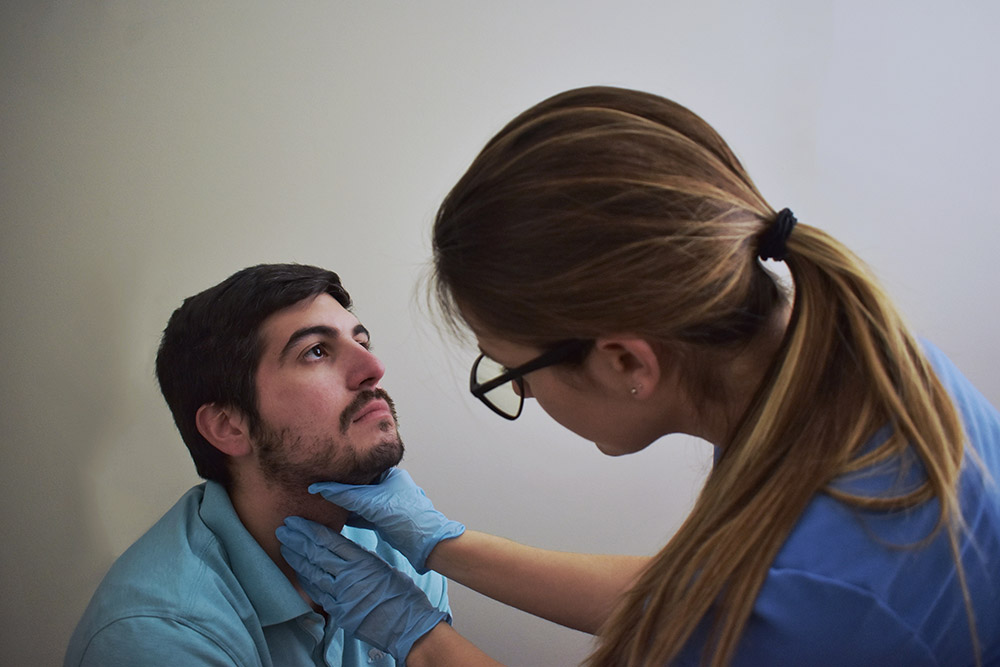
Have you ever had the experience of having food stuck in the throat? Or do you sneeze in water drinking? You're not alone. This may be a disorder known as dysphagia, or difficulty in swallowing.
This is the experience of millions of adults annually. When untreated, dysphagia may result in weight loss, dehydration and even lung infections.
In this guide, you will know what dysphagia is, the causes as well as how to tell whether you have it or not. We are also going to put what to do when we see a doctor and what treatments we can have.
In addition, you will also talk with Dr. Bharat Pothuri, an expert GI in Houston and get some good tips that can help make it easier to swallow whether you are in Sugar Land or The Woodlands or right in the heart of Houston.
Dysphagia (pronounced dis-FAY-juh) is trouble in swallowing. The majority of humans will mindlessly swallow hundreds of times each day. However when anything is wrong such as the weak muscles or damage to the nerves swallowing can be difficult or even risky.
There are a lot of muscles and nerves involved in swallowing, says Dr. Pothuri. Eating can be uncomfortable even with very minor modifications.
Doctors distinguish two types of dysphagia:
Dysphagia can be brought about by many health problems. Here are the most common:
The primary symptom is trouble in swallowing. But you may also notice:
Dr. Pothuri says that even minor symptoms cannot be overlooked. They might be a component of an even larger issue.
Want to track your symptoms? Try this:
Bring this log to your doctor. They may suggest:
Learn more at NIDDK.gov
| Characteristic | Oropharyngeal Dysphagia | Esophageal Dysphagia |
| Onset | Mouth or throat | Chest/esophagus |
| Symptoms | Drooling, choking, nasal leakage | Food keeps getting stuck, chest pain |
| Typical Causes | Nerve/muscle issues | Narrowing, reflux, achalasia |
| Tests Used | Swallow study, neuro exam | Barium X-ray, endoscopy, manometry |
| First Steps | Swallow therapy, soft foods | Medications, dilation, surgery |
Here's when to act quickly:
Dr. Pothuri says that early treatment results in better results. “Don't wait.
In Gastrodoxs our team is progressive::
In the meantime, until you get a diagnosis or a treatment consider:
Problems that are caused by swallowing may appear minor, but they can cause enormous consequences. Going through Montrose, Baytown, Katy or any part of Houston, do not disregard the signs.
Begin to monitor your symptoms, experiment with minor modifications, and discuss with a GI.
Gastrodoxs is a team of people led by Dr. Bharat Pothuri who is here to facilitate your eating, drinking, and feeling better on a daily basis.
Neurological conditions (such as a stroke or Parkinson) and problems with the muscles (such as myasthenia gravis), obstructions in the esophagus, or chronic acid reflux (GERD) can cause dysphagia.
Not always. Minor and short-lived irritation of the throat may lead to temporary swallowing discomfort. Nevertheless, chronic or progressive symptoms are to be checked by a physician.
Should you be unable to swallow liquids or have a terrible pain, then head to the emergency. Otherwise, schedule appointment in case you have the symptoms that last longer than two weeks or you lose weight without efforts.
Yes. The lining of the esophagus can become inflamed and scarred as a result of chronic acid reflux leading to a throat narrowing and a difficulty in swallowing.
Routine diagnostics are a barium swallow X-ray (esophagram), upper endoscopy (camera scope), esophageal manometry (muscle pressure measurement), and video fluoroscopy (real-time swallowing study).
Sticky, dry, crunchy or hard to chew foods e.g. crackers, nuts, peanut butter and tough meats can be problematic. Thickened liquids and soft or pureed diet may be suggested to a speech-language pathologist.
A speech-language pathologist trains many patients to engage in specific exercises, positioning changes, and swallowing to achieve considerable improvement.
Yes. In case food or liquids get to the airway rather than passing through the esophagus, food aspiration pneumonia can develop in the lungs.
Gastrodoxs.com collaborates with gastrointestinal and speech-language pathology units throughout Houston such as Sugar Land, The Woodlands, Katy, and Pearland to diagnose and treat the swallowing disorders.
It is dependent on the cause. Strictures or achalasia are structural issues that can be treated well with dilation or surgery, although each case must be considered individually.